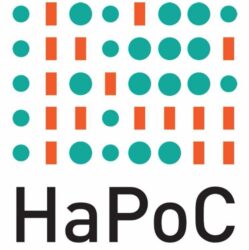This special issue initiates Philosophy and Technology’s new subject area on logic and technology by proposing to explore novel insights from the natural, yet in philosophical contexts still uncommon juxtaposition of logic and technology. Instead of considering questions regarding the philosophical relevance of how logic is applied in technology (as witnessed by the role of recursion theory, the foundation of computation, in logic), as a means to reason about technology (reasoning about programs, security, etc.), or even how technology is used to learn more about logic (e.g. with the help of theorem-provers), we suggest to explore how our thinking about logic can be shaped by our thinking about technology. This includes, first and foremost, the suggestion that we can see logic as a technology by avoiding the common restriction of technology to physical artefacts and the even more traditional restriction of logic to symbolically formulated deductive systems. Abstract or semantic artefacts are technologies, and logic is—like mathematics—a typical example of such a technology.
The proposal to see logic as a technology emphasises the mutual interaction between technology and philosophy, but also addresses the deeper issue that the traditional scope of the philosophy of logic does not include influential uses and applications of logic in or related to computer science, economics, cognitive science, or linguistics, as central or essential uses of logic. Indeed, the exclusive focus on logic as a universally applicable standard for correct deductive reasoning, and the common suggestion that reasoning in the vernacular is the notional domain of application for deductive logic, blocks the development of a common understanding of logics as codifications of validity and of logics as formal modelling tools.
A general header under which we can study logics as technologies starts from the insight that logical systems and theories are (pick your preferred term) developed, engineered or designed, and are often so with a particular application in mind. Even when influenced or inspired by existing linguistic and inferential practices, they are rarely the result of merely extracting the formal structure of pre-existing rational ways of reasoning, arguing or communicating. Many of their properties are, instead, best seen as the result of design or modelling decisions.
Related worries about mainstream philosophy of logic have been voiced in many different contexts, and can be tied to lines of inquiry in neighbouring disciplines. With an explicit focus on logic, we find it whenever the practice of conceptual analysis is explicitly approached in terms of conceptual and scientific modelling (Floridi 2011, Löwe & Müller 2011), and requires us to think explicitly about practical and theoretical trade-offs (Shapiro 2014). The renewed interest in Carnapian explication (Carus 2008, Dutilh Novaes & Reck 2015) further underscores this general development in contemporary theoretical and formal philosophy, whereas insights from cognitive sciences have led to specific studies of mathematics (De Cruz & De Smedt 2010, Netz 1999, Widom & Schlimm 2012) and logic (Dutilh Novaes 2012) as cognitive technologies. Finally, a more critical side of this focus on how formal languages are constructed can be found in Stokhof and van Lambalgen’s recent analysis of the role of formal languages in contemporary linguistics.
TOPICS
We welcome papers that explore the potential connections between logic and technology, and further develop fruitful ways of technological thinking about logic. This includes, but is not restricted to contributions that fall in one of the following categories:
Insights drawn from the history of logic, and inquiries into the historical grounds for seeing logic as an abstract artefact.
Insights drawn from the philosophy of technology, and applications to logic of specific ways of looking at technology.
Insights from the philosophy of the formal sciences, and from science and technology studies, including the philosophy of modelling, and the practice and foundations of programming.
TIMETABLE
May 1, 2016: Deadline for paper submissions
July 1, 2016: Deadline reviews papers
September 1, 2016: Deadline revised papers
2016/17: Publication of the special issue
SUBMISSION DETAILS
To submit a paper for this special issue, authors should go to the journal’s Editorial Manager http://www.editorialmanager.com/phte/
The author (or a corresponding author for each submission in case of co- authored papers) must register into EM. The author must then select the special article type: “SI on Logic as Technology” from the selection provided in the submission process. This is needed in order to assign the submissions to the Guest Editors.
Submissions will then be assessed according to the following procedure:
New Submission => Journal Editorial Office => Guest Editor(s) => Reviewers => Reviewers’ Recommendations => Guest Editor(s)’ Recommendation => Editor-in-Chief’s Final Decision => Author Notification of the Decision. The process will be reiterated in case of requests for revisions.
For any further information please contact: Patrick Allo patrick.allo@oii.ox.ac.uk
